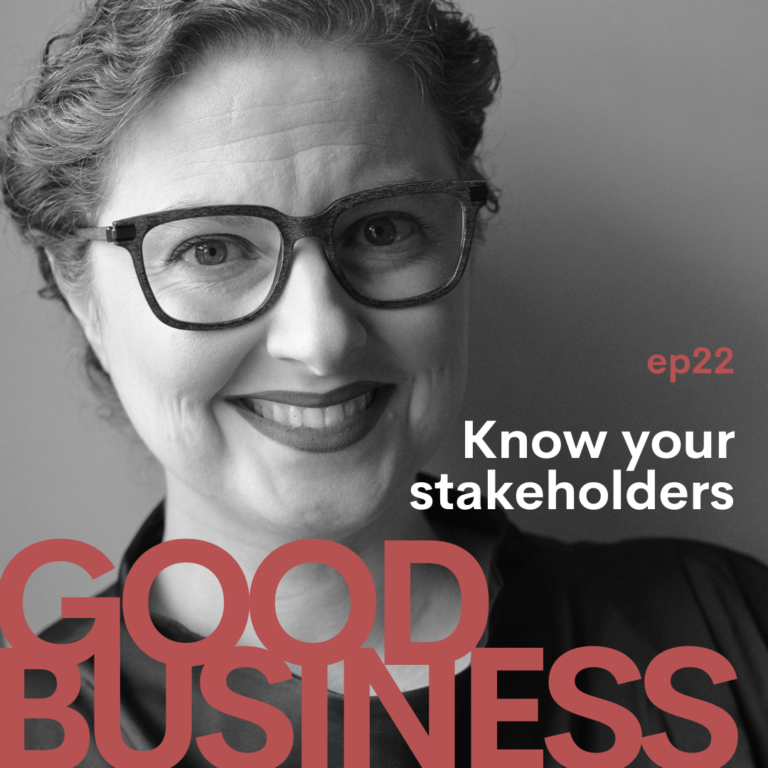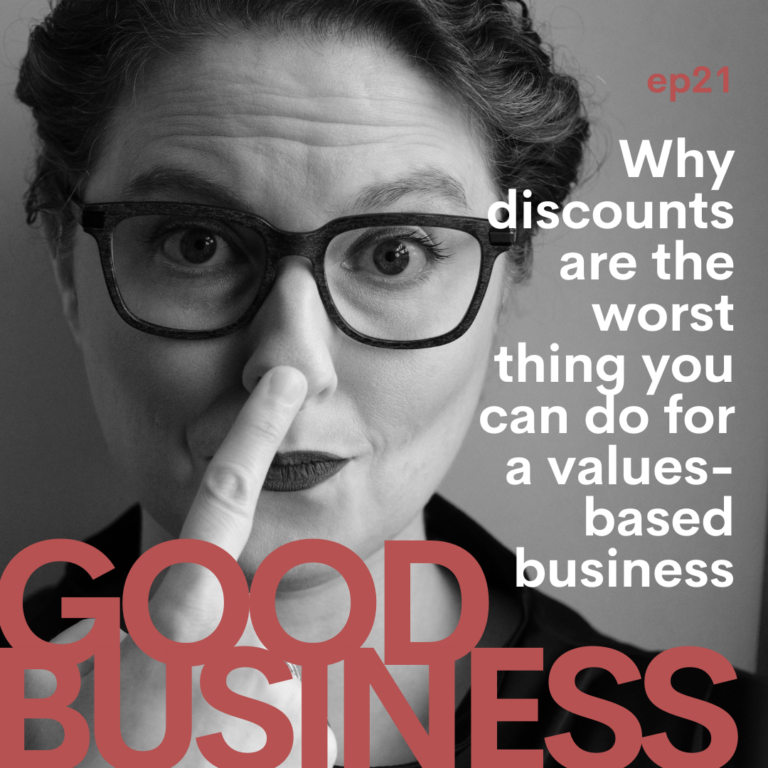Today’s topic is mistakes in business. Why? We all make them. Good business involves managing both good and bad situations effectively, with elegance, education, confidence. This skill is often overlooked. Let’s explore common mistakes, how people typically handle them (wrongly!), and better approaches. We’ll discuss power dynamics, the upside of handling mistakes well, practical tools and skills, and the bigger picture beyond client relationships.
[NOTE: The transcript below was generated with the help of AI. I do not advocate for the use of AI in copywriting in general, but see it as a useful tool for improving efficient editing of my own creative content. None of the actual content of the episode or the transcript was AI-generated. I just let the computer help me clean up the text so it can be more easily understood and consumed. ~i.]
Common Mistakes:
- Late deliveries, product errors, disappointed clients, failure to follow through (service providers).
- Wrong items, late arrivals, damaged goods, grumpy clients (product-based businesses).
- Everyone has faced these. Nobody escapes unscathed. My own experience: 15 years, 10 bad client experiences, 3 who think I’m the devil.
Why Over-Apologizing and Overcompensating Hurt:
- Clients expect it, making them more demanding.
- It changes the power dynamic, making you seem insecure and unprofessional.
- You lose control, potentially damaging the relationship.
Maintaining Power Dynamics:
- Over-apologizing and overcompensating can lead to:
- Client insecurity and aggression.
- Client micromanagement and fear.
- Breakdown of trust and relationship.
- You need to maintain power to deliver effectively and earn continued trust.
Taking Accountability:
- Apologize only for what you could have done better.
- If the mistake had impact, apologize for that (e.g., late delivery affecting client’s business).
- Don’t overexplain or blame yourself.
Addressing Mistakes:
- For minor issues or no impact: apologize, move on to next project stage.
- For high-impact issues:
- Apologize for the effect.
- Offer compensation if possible.
- Outline a plan to fix the issue and prevent recurrence.
- Move forward.
- If the client remains dissatisfied, offer to end the contract. Don’t tolerate abuse.
Surprising and Delighting Clients:
- Go beyond fixing the issue.
- Surprise them with a thoughtful gift unrelated to your work.
- This personalizes your relationship and builds goodwill.
- Example: Sending extra coffee for a broken bag.
Standing Firm Against Unreasonable Clients:
- If you’re right and the client is abusive, calmly stand your ground.
- Remind them of agreements and contracts.
- If necessary, end the contract. It’s not worth taking abuse.
- This applies to all businesses, though specific boundaries may vary.
Shifting the Conversation and Setting Expectations:
- Don’t dwell on mistakes. Remind the client it was a one-off and move forward.
- Don’t let the client control the conversation.
- Set clear expectations about communication and professionalism from the start.
Conclusion:
- Mistakes are inevitable, but handling them well can build strong client relationships.
- Be confident, graceful, and human.
- Treat clients as equals and set healthy boundaries.
- You can turn a bad situation into a positive one and create loyal clients.
More Episodes
Start where you are. Use what you have. Do what you can. | GB 25
Today’s episode of The Good Business Podcast is all about my very favorite quote in the whole world. “Start where you are. Use what you have. Do what you can.” by Arthur Ashe
Why impact matters as much as marketing, sales, or strategy. Maybe more. | GB24
Today’s episode is less of a lesson than recent episodes. Instead, today we’re making a case for a topic we’ll be talking a LOT more about in the future: IMPACT. What it is. Why it matters. And how to pay attention to it.
Market visibility for people who care about other people | GB23
Today is a branch off of our stakeholder conversation. If you listened to that episode, you should have a clear picture of exactly who matters to you and your work and why, as well as how much time you have for your work without sacrificing what those VIPs need and expect from you. Next up, we talk about exposure, protection, and the responsibility you have to those who matter most.
Know Your Stakeholders | GB22
In this episode, I’m going to walk you through how to think about establishing your stakeholders, the steps you need to take to do so, and how to make decisions based on who they are without compromising those big fat dreams we’ve been talking about.
Pricing Basics: Why discounts are almost never a good idea | GB21
Today’s episode dovetails on our last one, where we talked all about how your value isn’t determined by your price tag. Today, we’re talking about discounts. First, we’ll talk about why businesses offer them, what their purpose is and when they ARE a good idea. Then we’ll talk about why they are probably a bad idea for you and what to do instead.
Pricing Basics: Your value is not attached to your price | GB20
This episode breaks down the popular trope that if you don’t charge a lot, people won’t value your work. First, we talk about the conditions that make this a common piece of advice. Then I lay out why this is complete crap for certain kinds of businesses. Finally, the episode wraps up with a brief primer on how to think about pricing in a way that serves your people AND your bigger dreams for yourself.






